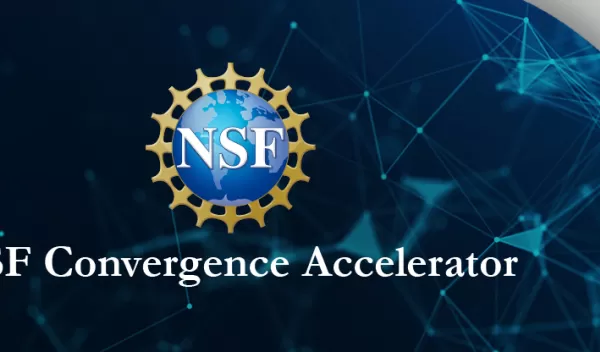
NSF advances 10 quantum technology and artificial intelligence Innovation solution teams to the next phase of the Convergence Accelerator program
The U.S. National Science Foundation announced a $50 million investment to advance 10 convergent multidisciplinary research teams, funded by the Convergence Accelerator program, to phase 2. The selected teams will continue to apply a convergent approach as they transition phase 1 concepts and solutions into practical, sustainable applications in quantum technology, combating climate change and managing natural disasters, monitoring and detecting biothreats, and other real-world solutions that address society's most pressing concerns and challenges.
"A convergence approach is essential to solving large-scale societal challenges," said Douglas Maughan, head of the NSF Convergence Accelerator program. "The merging of ideas, techniques and approaches combined with human-centered design concepts and end-user insights assist our teams in transforming their ideas to a proof of concept, then prototype and finally a solution. With a three-year research model, we expect our phase 2 teams to provide high-impact deliverables."
Over the next two years, phase 2 teams will participate in an innovation and entrepreneurial curriculum that includes product development, intellectual property, financial resources, sustainability planning, and communications and outreach.
Launched in September 2020, the Convergence Accelerator 2020 cohort included 29 phase 1 teams. During phase 1, teams developed their initial concepts, strengthened their teams, and interacted with customers, end-users and partners. The teams completed phase one with a formal phase 2 proposal and pitch.
The phase 2 teams are listed below.
Quantum technology teams
- Photonic Engine to Accelerate Atomic Quantum Engineering — Led by the University of Washington, the team is addressing quantum computing scalability by innovating a chip-scale, multi-beam optical control system that empowers cold-atom quantum computing with thousands of qubits.
- Quantum Networks to Connect Quantum Technology — Led by the University of Maryland, the team is developing hardware to transform the internet into a quantum internet, which is essential for connecting a rapidly expanding network of quantum computers.
- Quantum-Enhanced Inertial Measurement Unit — Led by the University of Arizona, the team is developing an entanglement-enhanced sensing architecture to benefit a variety of domains, including secure inertial navigation, space and planetary terrestrial control, and health care monitoring.
- Quantum Information Science, Technology, Engineering, Arts and Mathematics — Led by the Ohio State University, this transformational undergraduate curriculum aimed at addressing critical workforce needs in quantum information science and engineering.
AI-driven data sharing and modeling teams
- AI-Enabled, Provably Resilient, Programmable Networked Microgrids — Led by Stony Brook University, the team is developing an AI-enabled solution for resilient networked microgrids.
- A Collaborative Fire Management Platform — Led by the University of California, San Diego, the team is building a platform to enhance public sector collaboration to proactively reduce the risk of devastating megafires. Leveraging the WIFIRE Commons data sharing and AI framework, the platform uses next-generation fire science in prescribed burns for vegetation treatment at an unprecedented scale.
- Computing the Biome — Led by Vanderbilt University, the team is creating a data and AI platform for monitoring and predicting biothreats in a major U.S. city, and to drive economic sustainability by empowering businesses and advanced science missions to deliver valuable consumer applications and breakthroughs.
- Community Resource for Innovation in Polymer Technology — Led by the Massachusetts Institute of Technology, the team is building an AI-enabled cloud application and database for polymer scientists to easily find and interact with complex data.
- Hydrologic Scenario Generator — Led by the University of Arizona, the team is creating a web-based machine learning platform to generate custom hydrologic scenarios on demand.
- Precision Epidemiology — Led by the University of California, Davis, the team is creating an online platform that converges data, AI models and expertise across the livestock production and health space for animal health management.
More information about the Convergence Accelerator program can be found at nsf.gov.
